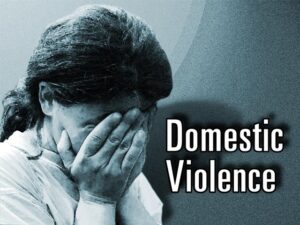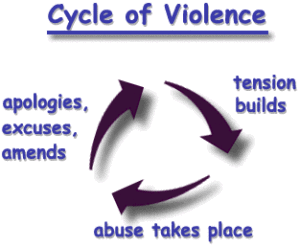Introduction

Lower your risks of domestic violence. Today we point to knowledge as the key to preventing potential life-threatening episodes in the household. This is the second in a Straight, No Chaser series on domestic violence. The previous post focused on the scope of domestic violence. Another post will focus on actions to take if you find yourself in a relationship in which domestic violence occurs.
Considerations reflecting risks of domestic violence
Certain environments or conditions may increase your risk of becoming a victim of domestic violence. Here are certain considerations that suggest you may be at risk:
- Certainly drugs and alcohol can exacerbate an already volatile situation.
- Also, be aware that pregnancy is a particularly sensitive time emotionally. During this time, abuse may start or increase.
- Finally, women with fewer resources or greater perceived vulnerability are at even greater risk for domestic violence and lifetime abuse. Unfortunately, this is especially true for girls, those experiencing physical or psychiatric disabilities and those living below the poverty line.
Sadly, children have several risks of domestic violence. Often, they are at risk even if they do not initially witness it directly. To protect them and yourself, evaluate your mate or others in a position to exert control over you. Abusers are masterful at isolating, manipulating, intimidating and controlling those they abuse. Abusers don’t always attack with a frontal assault. Abuse may begin slowly and progress. You may accommodate certain demands in an effort to “keep the peace” in your relationship and then find yourself beyond an easy retreat from a once generous and loving person who is now intimidating and threatening.
The insidious nature of abuse must be reemphasized. What may seem, at first, to be an isolated incident complicated by theoretically understandable factors may grow into a way of life with seemingly small events triggering abuse. Your abuser may change from an individual showing regret and remorse to someone who seems repulsed by your existence, blaming your every action (or inaction or anticipated action) for the abuse that follows.
Conditions suggesting increased risks of abuse
The following conditions and circumstances have been associated with propensities for abuse. Don’t consider these as absolute predictors as much as risk factors about which you should be aware.
- Whirlwind romance
- Abnormal desire to be with you all the time
- Tracking what you’re doing and who you’re with
- Jealousy at any perceived attention to or from others
- Attempting to isolate you in the guise of loving behavior, including going to lengths to convince you that your friends and family don’t adequately care for you (e.g., “You don’t need to work or go to school” or “We only need each other”)
- Hypersensitivity to perceived slights
- Quick to blame you or others for the abuse
- Pressuring you into doing things you aren’t comfortable with (e.g., “If you really love me, you’ll do this for me”)

Do you have risks of domestic violence? Ask yourself these questions.
- Are you ever afraid of your partner?
- Has your partner ever hurt or threatened to hurt you physically or someone you care about?
- Does your partner ever force you to engage in sexual activities that make you uncomfortable?
- Do you constantly worry about your partner’s moods and change your behavior to deal with them?
- Does your partner try to control where you go, what you do and who you see?
- Does your partner constantly accuse you of having affairs?
- Have you stopped seeing family or friends to avoid your partner’s jealousy or anger?
- Does your partner control your finances?
- Has he/she threatened to kill him/herself if you leave?
- Does your partner claim his/her temper is out of control due to alcohol, drugs or because he/she had an abusive childhood?
If you answered yes to some or all of these questions, you could already be at risk for or suffering abuse.
It’s personal. The risks of domestic violence are real indicators of danger. We understand, and we can help. Please … contact us if you’re in need of support. Our expert crisis counselors are here for you, 24/7. 1-844-SMA-TALK or www.SterlingMedicalAdvice.com. You don’t have to “endure with dignity.”
Follow us!
Feel free to ask your SMA expert consultant any questions you may have on this topic. Take the #72HoursChallenge, and join the community. As a thank you, we’re offering you a complimentary 30-day membership at www.72hourslife.com. Just use the code #NoChaser, and yes, it’s ok if you share!
Order your copy of Dr. Sterling’s books There are 72 Hours in a Day: Using Efficiency to Better Enjoy Every Part of Your Life and The 72 Hours in a Day Workbook: The Journey to The 72 Hours Life in 72 Days at Amazon or at www.jeffreysterlingbooks.com. Receive introductory pricing with orders!
Thanks for liking and following Straight, No Chaser! This public service provides a sample of http://www.SterlingMedicalAdvice.com (SMA) and 844-SMA-TALK. Please share our page with your friends on WordPress! Like us on Facebook @ SterlingMedicalAdvice.com! Follow us on Twitter at @asksterlingmd.
Copyright © 2018 · Sterling Initiatives, LLC · Powered by WordPress

